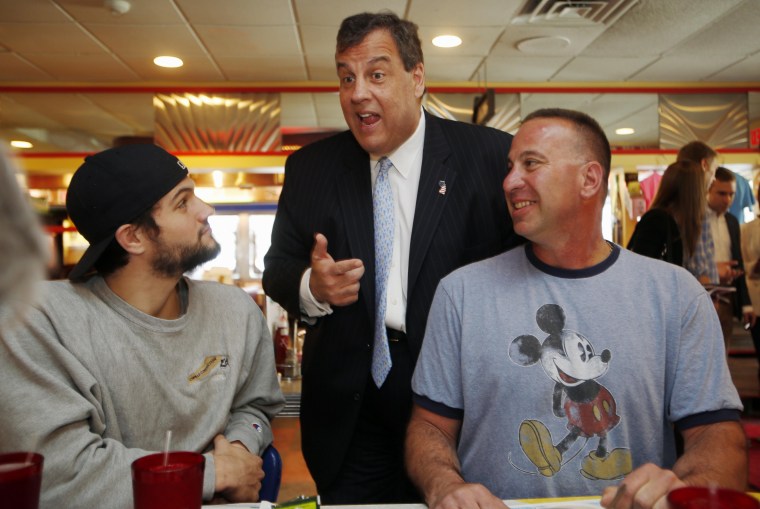New Jersey Governor Chris Christie wants to be noticed. Stuck at the back of a competitive GOP field in early polls, Christie is embracing a risky strategy for a potential presidential candidate.
Plagued by the George Washington Bridge scandal and ebbing popularity – both at home and in early primary states - Christie has toned down his in-your-face oratory. But with little to lose, he has taken a shock-and-awe approach to policy as he tests the waters, doubling down on the perception that he is the only one willing to tell the truth.
He’s doing that by adopting strong positions early in the process, addressing issues that go untouched by most candidates and espousing positions counter to Republican ideology.
After months of refusing to address questions on specific issues or offering commentary on news of the day, it was unclear if Christie would embrace the straight-talking persona willing to rebuke fellow Republicans or if he would reshape his image as a candidate with more caution and more in line with a more conservative GOP.
In his reemergence onto the presidential political scene last month, Christie indicated that he's going to embrace the undeniable. In an unconventional - and risky - move, in the opening salvo of his likely campaign he proposed cutting Social Security. While many Republicans are supportive of the idea, few highlight it on the campaign trail. The issue is considered the third rail of politics because of its popularity among seniors, the most reliable voters. Christie proposed cutting benefits by rising the retirement age by two years and reducing the amount of benefits for people with higher incomes.
“People in my business don’t trust the American people enough to tell them the truth. I do,” Christie told a technology conference in Northern Virginia in early May. “I absolutely believe that not only should we, but we must, we better start addressing this.”
Christie played into that strategy again last week when he said that global warming is real and that it’s caused by humans - not a popular position in the Republican Party and likely to alienate some in the Republican base.
And just this week, Christie said the Federal Reserve’s policies are contributing to the gap between the rich and the poor – a belief more likely espoused by liberals or libertarians not business-oriented Republicans.
What’s notable, as well, is that Christie made each of these policy pronouncements in New Hampshire, which holds the first primary in the nation and is perhaps Christie’s best – and only – shot at making a mark in the nomination process.
Christie is spending most of his campaign time in the Granite State with its northeastern, more moderate Republicans who are more concerned about fiscal issues than social ones. He has visited the state eight times this year, including a visit to the state this week. By contrast he has visited Iowa four times and South Carolina just once. He is one of the few Republican hopefuls skipping the popular Lincoln Day dinner in Iowa this weekend. His aide notes that the governor will attend the Polk County Dinner in Iowa in June, which is much smaller and courts the more moderate Republican voters in Des Moines area.
But Christie has a lot of ground to make up, even in the state that is most similar to his ideological beliefs. In the latest poll from the state, Christie received the support of 3 percent of respondents. Not only is that number near the end of the pack, his support is declining as it’s far from the 9 percent he received months prior.
Taking such potentially toxic positions could be political suicide or it could rejuvenate his campaign. But at this point, Christie has nothing to lose by proposing unpopular positions or addressing controversial topics.

